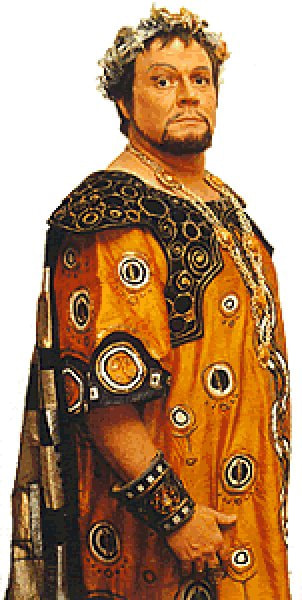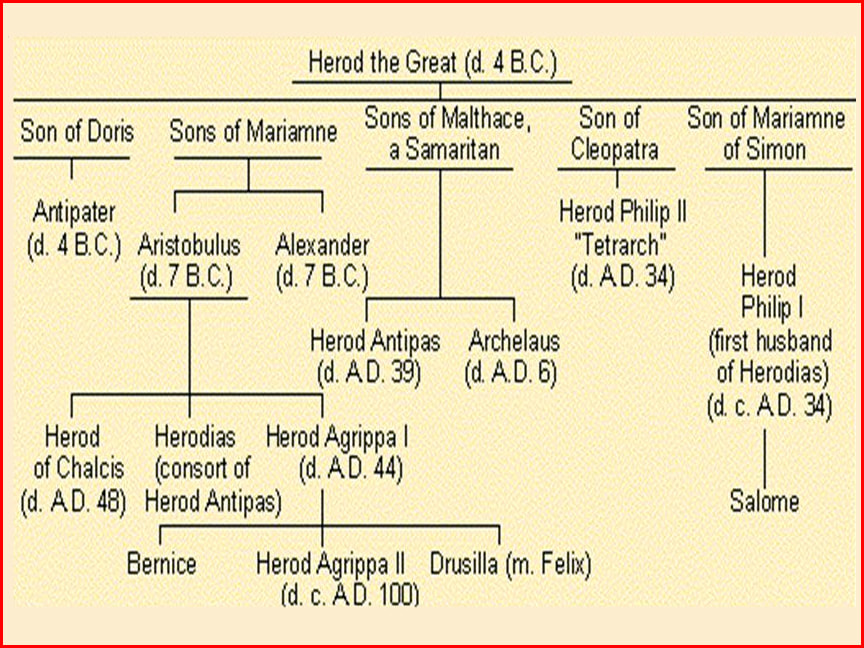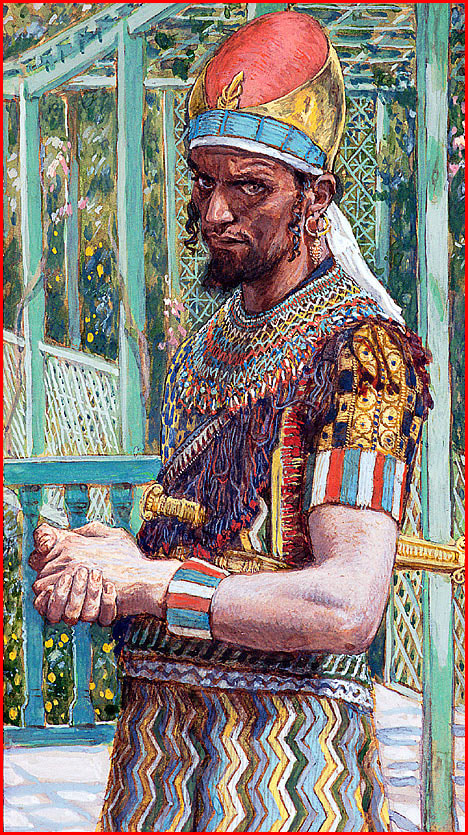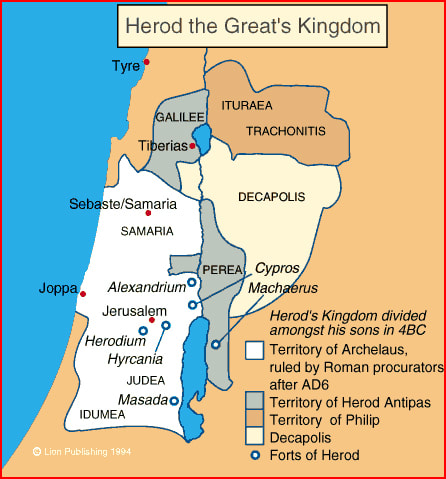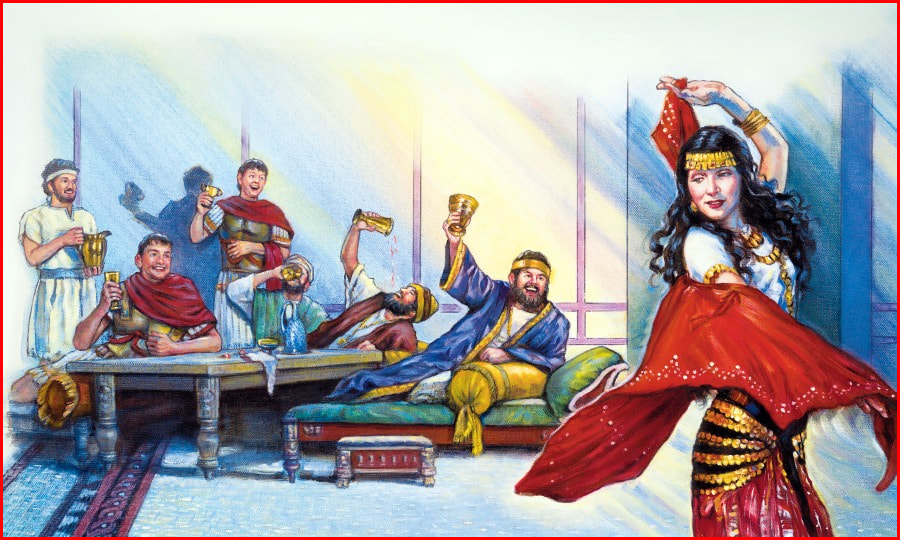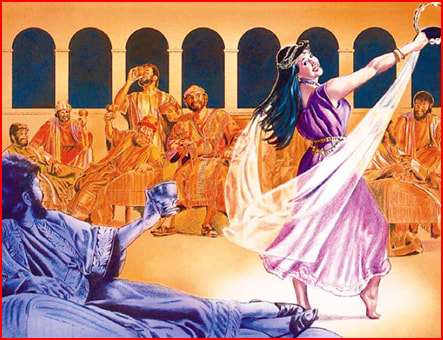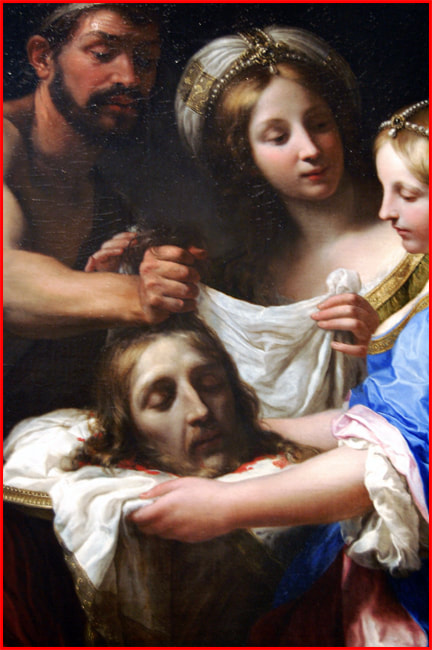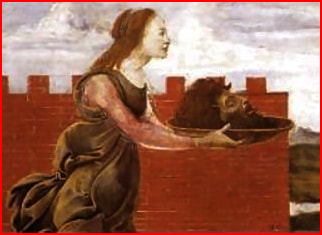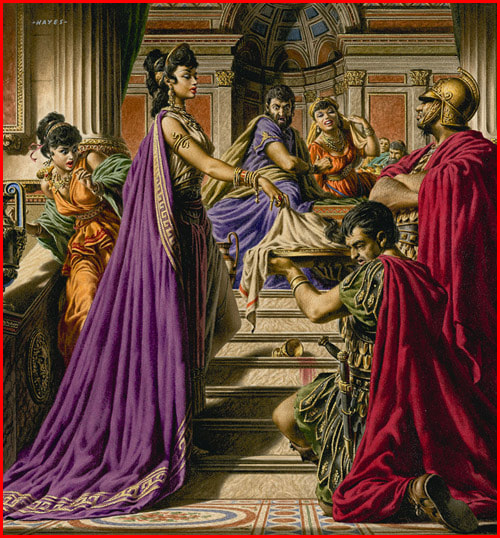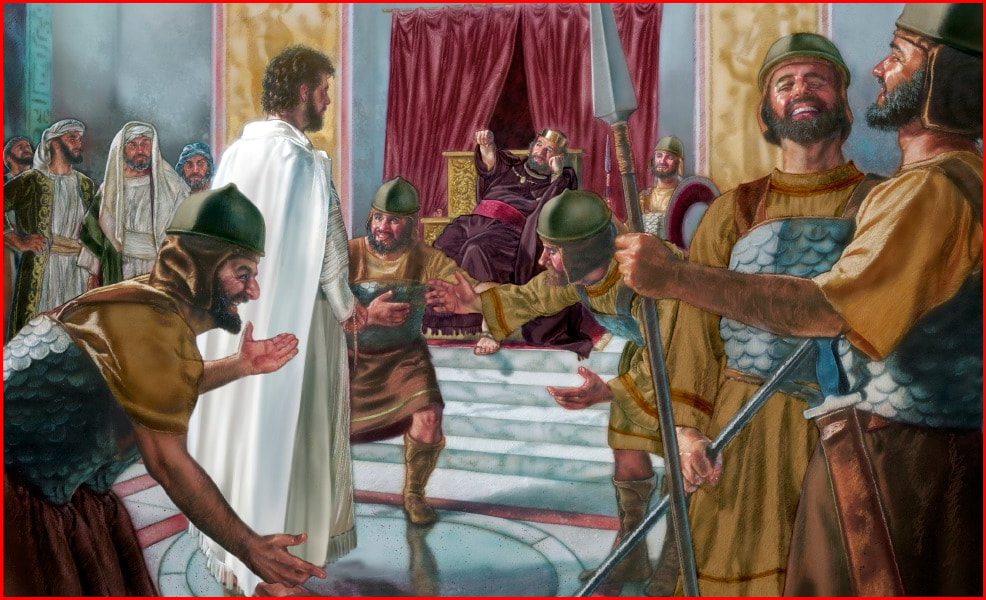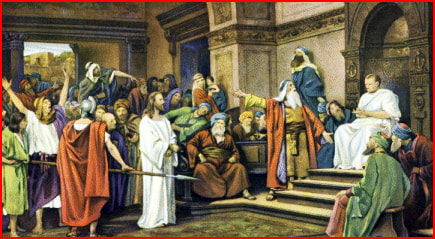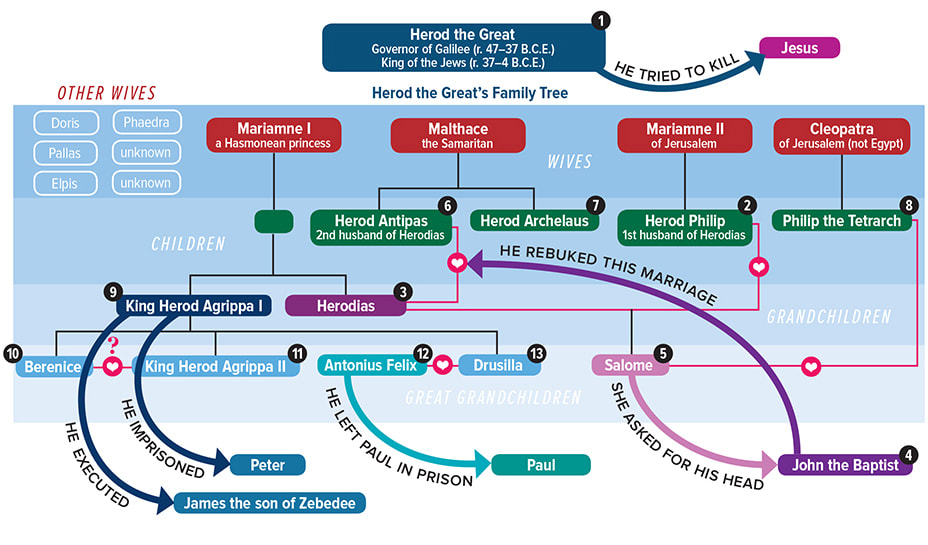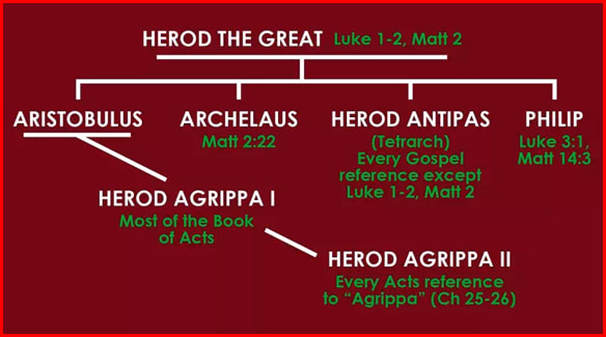| Devotion to Our Lady |
|
- Homepage
-
Daily Thoughts
- 2023 October Daily Thoughts
- Daily Thoughts Lent 2020
- Daily Thoughts for Advent 2019
- Daily Thoughts for October 2019
- Daily Thoughts for September 2019
- Daily Thoughts for August 2019
- Daily Thoughts for July
- Daily Thoughts for June
- Daily Thoughts for Easter 2019
- Daily Thoughts for Lent 2019
- Daily Thoughts for Christmas
- Daily Thoughts Easter 2022
- Sacred Heart
- Holy Ghost
-
Spiritual Life
- Holy Mass Explained
- First Friday Devotions
- First Saturday Devotions
- The Mercy of God
- Vocations
- The Path Everyone Must Walk >
- Gift of Failure
- Halloween or Hell-O-Ween?
- Ignatian Spiritual Exercises >
- Meditation is Soul-Saving
- Spiritual Communion
- Miraculous Medal
- Enrollment in Miraculous Medal
- St. Benedict Medal
- Holy Water
- Advice on Prayer
- Your Daily Mary
-
Prayers
- September Devotions
- Seven Sorrows of Our Lady
-
Novenas
>
- NV-Help of Christians
- NV-Nativity of Our Lady
- NV-Seven Sorrows
- NV- Sorrowful Heart
- NV-Pope St Pius X
- NV-La Salette
- NV-St Michael Archangel
- NV-Immaculate Heart
- NV-Assumption
- NV-Novena for Fathers
- NV-Novena for Your Mother
- NV-St Raphael Archangel
- NV-Souls in Purgatory
- NV-All Saints Day
- NV-Christ the King
- NV-Divine Motherhood
- NV-Guardian Angels
- NV-Rosary
- NV-Mirac Med
- NV- Imm Conc
- NV - Guadalupe
- NV - Nativity of Jesus
- NV-Epiphany
- NV-OL Good Success
- NV-Lourdes
- NV-St Patrick
- NV-St Joseph
- NV-Annunciation
- NV-St Louis de Montfort
- NV-OL Good Counsel
- NV-Last Supper
- NV-Passion
- NV-Pentecost
- NV-Ascension
- NV-Sacred Heart
- NV-Sacred Heart & Perpetual Help
- NV-Corpus Christi
- NV-OL of Perpetual Help
- NV-Queenship BVM
- NV-OL of Mount Carmel
- NV-St Mary Magdalen
- NV- Im Hrt
- August Devotions to IHM
- Immaculate Heart of Mary
- Litany of Dependence
- Prayers to St Mary Magdalen
- Prayers in Times of Sickness Disease & Danger
- Holy Souls in Purgatory
- Meditations on the Litany of Our Lady
- Special Feast Days
- Prayers to Mary (Mon-Sun)
- Litanies to Our Lady >
- Various & Special Needs
- Our Lady of the Rosary
- Our Lady of Mt. Carmel
- Our Lady of Perpetual Help
- Our Lady of Guadalupe
- Other titles of Our Lady
-
Rosary
- Downloads
- Consecration
- Easter Season
-
Holy Week
- Last Seven Words of Jesus >
- Characters of Passion >
- The Last Days of Christ
- Before Palm Sunday
- Palm Sunday
- Monday in Holy Week
- Tuesday in Holy Week
- Wednesday in Holy Week
- Holy Thursday (Last Supper)
- Holy Thursday (Agony & Arrest)
- Night Vigil with Christ
- Good Friday (Pilate & Herod)
- Good Friday (Way of Cross & Crucifixion)
- Saturday in Holy Week
-
Lent
- Ideas for Lent
- Daily Lenten Planner
- Daily Lenten Liturgy
- From Cold to Hot
- Lent with Aquinas
- Lent with Dom Gueranger
- Virtues for Lent
- History of Penance
- How Expensive is Sin?
- Confession of Sins
- Letter to Friends of the Cross
- Sermons for Lent
- Stations of the Cross >
- Lenten Prayers
- 7 Penitential Psalms
- Lenten Psalms SUN
- Lenten Psalms MON
- Lenten Psalms TUE
- Lenten Psalms WED
- Lenten Psalms THU
- Lenten Psalms FRI
- Lenten Psalms SAT
- Lenten Laughs
- Septuagesima
-
Christmas
- Epiphany Explained
- Suggestions for Christmas
- Food For Thought
- Christmas with Aquinas
- Christmas with Dom Gueranger
- Christmas Prayers
- Candles & Candlemas
- Christmas Sermons
- Christmas Prayers SUN
- Christmas Prayers MON
- Christmas Prayers TUE
- Christmas Prayers WED
- Christmas Prayers THU
- Christmas Prayers FRI
- Christmas Prayers SAT
- Twelve Days of Christmas >
-
Advent Journey
- Purgatory
- Christ the King
- Legion of Mary
- Scapular
-
Saints
-
Martyrs for the Faith
>
- Your Daily Martyr >
- All 365 Days of Martyrs
- Cristeros
- St Valentine & Valentine's Day
- Martyrs--Thomas Becket
- Martyrs--John the Apostle
- Holy Machabees
- Age of Martyrdom
- Carmelites of Compiegne
- Martyrs--Peter & Paul
- Martyrs--John the Baptist
- Martyrs--Andrew
- Martyrs--James the Great
- Martyrs--North American
- Martyrs--Seven Holy Sleepers
- Martyrs--Afra
- School of Martyrdom
- Martyrs--Christina
- Desert Saints >
- Saints for Sinners >
- Saints of Mary >
- History of All Saints Day
-
Martyrs for the Faith
>
- Precious Blood
- Synod 2023
-
Catechism
- Catechism Lesson 1
- Catechism Lesson 2
- Catechism Lesson 3
- Catechism Lesson 4
- Catechism Lesson 5
- Catechism Lesson 6
- Catechism Lesson 7
- Catechism Lesson 8
- Catechism Lesson 9
- Catechism Lesson 10
- Catechism Lesson 11
- Catechism Lesson 12
- Catechism Lesson 13
- Catechism Lesson 14
- Catechism Lesson 15
- Catechism Lesson 16
- Catechism Lesson 17
- Catechism Lesson 18
- Catechism Lesson 19
- Catechism Lesson 20
- Catechism Lesson 21
- Catechism Lesson 22
- Bible Study
-
Calendar
- Miracles
- Apparitions
- Shrines
- Prophecies
- Angels Homepage
- Hell
-
Church Crisis
- Conspiracy Theories
- Amazon Synod 2019 >
- Liberalism & Modernism
- Modernism--Encyclical Pascendi
- Modernism & Children
- Modernism--Documents
- The Francis Pages
- Church Enemies on Francis
- Francis Quotes
- Amoris Laetitia Critique
- Danger of Ignorance (Pius X)
- Restore all In Christ (Pius X)
- Catholic Action (Pius X)
- Another TITANIC Disaster?
- The "Errors of Russia"
- CRISIS PRAYERS
- Election Novena 2024
- The Anger Room
- War Zone
- Life of Mary
- Spiritual Gym
- Stupidity
- Coronavirus and Catholicism
- History & Facts
- Books
- Catholic Family
- Children
- Daily Quiz
-
Novena Church & Pope
- Day 01 Church-Pope Novena
- Day 02 Church-Pope Novena
- Day 03 Church-Pope Novena
- Day 04 Church-Pope Novena
- Day 05 Church-Pope Novena
- Day 06 Church-Pope Novena
- Day 07 Church-Pope Novena
- Day 08 Church-Pope Novena
- Day 09 Church-Pope Novena
- Day 10 Church-Pope Novena
- Day 11 Church-Pope Novena
- Day 12 Church-Pope Novena
- Day 13 Church-Pope Novena
- Day 14 Church-Pope Novena
- Day 15 Church-Pope Novena
- Day 16 Church-Pope Novena
- Day 17 Church-Pope Novena
- Day 18 Church-Pope Novena
- Day 19 Church-Pope Novena
- Day 20 Church-Pope Novena
- Day 21 Church-Pope Novena
- Day 22 Church-Pope Novena
- Day 23 Church-Pope Novena
- Day 24 Church-Pope Novena
- Day 25 Church-Pope Novena
- Day 26 Church-Pope Novena
- Day 27 Church-Pope Novena
- Day 28 Church-Pope Novena
- Day 29 Church-Pope Novena
- Day 30 Church-Pope Novena
- Day 31 Church-Pope Novena
- Day 32 Church-Pope Novena
- Day 33 Church-Pope Novena
- Day 34 Church-Pope Novena
- Day 35 Church-Pope Novena
- Day 36 Church-Pope Novena
- Day 37 Church-Pope Novena
- Day 38 Church-Pope Novena
- Day 39 Church-Pope Novena
- Day 40 Church-Pope Novena
- Day 41 Church-Pope Novena
- Day 42 Church-Pope Novena
- Day 43 Church-Pope Novena
- Day 44 Church-Pope Novena
- Day 45 Church-Pope Novena
- Day 46 Church-Pope Novena
- Day 47 Church-Pope Novena
- Day 48 Church-Pope Novena
- Day 49 Church-Pope Novena
- Day 50 Church-Pope Novena
- Day 51 Church-Pope Novena
- Day 52 Church-Pope Novena
- Day 53 Church-Pope Novena
- Day 54 Church-Pope Novena
- Penance Novena
- Daily WeAtheR Forecast
The Greatest and Most Important Week in the Church's Liturgical Year
CLICK ON ANY HOLY WEEK LINK BELOW
Also lots of LENTEN & HOLY WEEK DOWNLOADS on the downloads page (click here)
LITURGICAL PRAYERS FOR EACH DAY OF THE WEEK DURING LENT
| Sundays of Lent | Mondays of Lent | Tuesdays of Lent | Wednesdays of Lent | Thursdays of Lent | Fridays of Lent | Saturdays of Lent |
HOLY WEEK PAGES
| Daily Thoughts | Holy Week Main Page | Before Palm Sunday | Palm Sunday | Last Days of Christ |
| Holy Thursday Last Supper Novena | Good Friday Passion Novena |
| Monday of Holy Week | Tuesday of Holy Week | Wednesday of Holy Week | Holy Thursday (Last Supper) | Holy Thursday (Agony & Arrest) |
| Night Vigil With Christ | Good Friday (Pilate & Herod) | Good Friday (Way of Cross & Crucifixion) | Holy Saturday |
THE CHIEF CHARACTERS OF THE PASSION
| Characters of the Passion Mainpage | The Sanhedrin | Pharisees | Scribes | Saducees | Jewish Crowd | Roman Rulers |
| Judas | Annas & Caiphas | Pontius Pilate | Herod | Barabbas | Dismas the Good Thief | St. Peter | St. John | Mary Magdalen |
THE FOURTEEN STATIONS OF THE CROSS
| Introduction to the Stations of the Cross | Short Version of the Stations of the Cross (all 14 on one page) | 1st Station | 2nd Station | 3rd Station |
| 4th Station | 5th Station | 6th Station | 7th Station | 8th Station | 9th Station | 10th Station | 11th Station | 12th Station | 13th Station | 14th Station |
THE LAST SEVEN WORDS OF JESUS FROM THE CROSS
| Seven Last Words on the Cross (Introduction) | The 1st Word on the Cross | The 2nd Word on the Cross | The 3rd Word on the Cross |
| The 4th Word on the Cross | The 5th Word on the Cross | The 6th Word on the Cross | The 7th Word on the Cross |
PRAYERS AND DEVOTIONS TO THE SEVEN SORROWS OF OUR LADY
| Seven Sorrows Meditations | Short Prayers & Short Seven Sorrows Rosary | Longer Seven Sorrows Rosary |
| 1st Sorrow of Our Lady | 2nd Sorrow of Our Lady | 3rd Sorrow of Our Lady | 4th Sorrow of Our Lady |
| 5th Sorrow of Our Lady | 6th Sorrow of Our Lady | 7th Sorrow of Our Lady |
| Novena #1 to the Sorrowful Heart of Mary | Novena #2 to the Sorrowful Heart of Mary |
LENTEN PAGES
| ASH WEDNESDAY COUNTDOWN | LENT (MAIN PAGE) | DAILY THOUGHTS | DAILY LENTEN LITURGY | DAILY LENTEN PLANNER |
| LENTEN PRAYERS | THE 7 PENITENTIAL PSALMS | IDEAS FOR PENANCE | LENT WITH AQUINAS | LENT WITH DOM GUERANGER |
| HISTORY OF PENANCE | PENANCES OF THE SAINTS | HOW EXPENSIVE IS SIN? | CONFESSION OF SINS | ARE FEW SOULS SAVED? |
| VIRTUES FOR LENT | FROM COLD TO HOT | LENTEN LAUGHS | SERMONS FOR LENT | LETTER TO FRIENDS OF THE CROSS |
| STATIONS OF THE CROSS (INDIVIDUALLY) | ALL 14 STATIONS OF THE CROSS |
| THE LAST DAYS OF CHRIST | SPECIAL HOLY WEEK PAGES |
CLICK ON ANY HOLY WEEK LINK BELOW
Also lots of LENTEN & HOLY WEEK DOWNLOADS on the downloads page (click here)
LITURGICAL PRAYERS FOR EACH DAY OF THE WEEK DURING LENT
| Sundays of Lent | Mondays of Lent | Tuesdays of Lent | Wednesdays of Lent | Thursdays of Lent | Fridays of Lent | Saturdays of Lent |
HOLY WEEK PAGES
| Daily Thoughts | Holy Week Main Page | Before Palm Sunday | Palm Sunday | Last Days of Christ |
| Holy Thursday Last Supper Novena | Good Friday Passion Novena |
| Monday of Holy Week | Tuesday of Holy Week | Wednesday of Holy Week | Holy Thursday (Last Supper) | Holy Thursday (Agony & Arrest) |
| Night Vigil With Christ | Good Friday (Pilate & Herod) | Good Friday (Way of Cross & Crucifixion) | Holy Saturday |
THE CHIEF CHARACTERS OF THE PASSION
| Characters of the Passion Mainpage | The Sanhedrin | Pharisees | Scribes | Saducees | Jewish Crowd | Roman Rulers |
| Judas | Annas & Caiphas | Pontius Pilate | Herod | Barabbas | Dismas the Good Thief | St. Peter | St. John | Mary Magdalen |
THE FOURTEEN STATIONS OF THE CROSS
| Introduction to the Stations of the Cross | Short Version of the Stations of the Cross (all 14 on one page) | 1st Station | 2nd Station | 3rd Station |
| 4th Station | 5th Station | 6th Station | 7th Station | 8th Station | 9th Station | 10th Station | 11th Station | 12th Station | 13th Station | 14th Station |
THE LAST SEVEN WORDS OF JESUS FROM THE CROSS
| Seven Last Words on the Cross (Introduction) | The 1st Word on the Cross | The 2nd Word on the Cross | The 3rd Word on the Cross |
| The 4th Word on the Cross | The 5th Word on the Cross | The 6th Word on the Cross | The 7th Word on the Cross |
PRAYERS AND DEVOTIONS TO THE SEVEN SORROWS OF OUR LADY
| Seven Sorrows Meditations | Short Prayers & Short Seven Sorrows Rosary | Longer Seven Sorrows Rosary |
| 1st Sorrow of Our Lady | 2nd Sorrow of Our Lady | 3rd Sorrow of Our Lady | 4th Sorrow of Our Lady |
| 5th Sorrow of Our Lady | 6th Sorrow of Our Lady | 7th Sorrow of Our Lady |
| Novena #1 to the Sorrowful Heart of Mary | Novena #2 to the Sorrowful Heart of Mary |
LENTEN PAGES
| ASH WEDNESDAY COUNTDOWN | LENT (MAIN PAGE) | DAILY THOUGHTS | DAILY LENTEN LITURGY | DAILY LENTEN PLANNER |
| LENTEN PRAYERS | THE 7 PENITENTIAL PSALMS | IDEAS FOR PENANCE | LENT WITH AQUINAS | LENT WITH DOM GUERANGER |
| HISTORY OF PENANCE | PENANCES OF THE SAINTS | HOW EXPENSIVE IS SIN? | CONFESSION OF SINS | ARE FEW SOULS SAVED? |
| VIRTUES FOR LENT | FROM COLD TO HOT | LENTEN LAUGHS | SERMONS FOR LENT | LETTER TO FRIENDS OF THE CROSS |
| STATIONS OF THE CROSS (INDIVIDUALLY) | ALL 14 STATIONS OF THE CROSS |
| THE LAST DAYS OF CHRIST | SPECIAL HOLY WEEK PAGES |
KING HEROD
|
Will the Real Herod Please Stand Up!
There are many mentions of "Herod" in the Bible, but not all of them are of the same man. There was not just ONE Herod that Holy Scripture refers to, but FOUR Herods! Here is a family tree that will hopefully help you in understanding the horrendous Herod identification problem. The "Herod of the Passion" is Herod Antipas
Herod Antipater was born sometime before 20 BC and died sometime after 39 AD. He was known by the nickname “Antipas”, and was the early first-century ruler of Galilee and Perea, who bore the title of tetrarch (“ruler of a quarter”) and is referred to as both “Herod the Tetrarch” and “King Herod” in the New Testament although he never held the title of king. After being recognized by Augustus upon the death of his father, Herod the Great (around 4 BC to 1 AD), Herod Antipas officially ruled Galilee and Perea as a client state of the Roman Empire. He is widely known today for accounts in the New Testament of his role in events that led to the executions of John the Baptist and Jesus of Nazareth. Antipas divorced his first wife Phasaelis, the daughter of King Aretas IV of Nabatea, in favour of Herodias, who had formerly been married to his half-brother Herod II. According to the New Testament Gospels, it was John the Baptist's condemnation of this arrangement that led Antipas to have him arrested; John was subsequently put to death in Machaerus. Besides provoking his conflict with St. John the Baptist, Herod’s divorce added a personal grievance to previous disputes with King Aretas (whose daughter Herod divorced) over territory on the border of Perea and Nabatea. The result was a war that proved disastrous for Herod Antipas; for a Roman counter-offensive was ordered by Tiberius, but abandoned upon that emperor's death in 37 AD. In 39 AD, Herod Antipas was accused by his nephew Herod Agrippa I of conspiracy against the new Roman emperor, the debauched Caligula, who sent Herod to Gaul (France) into exile. Accompanied there by Herodias, he died at an unknown date. Herod Antipater was born sometime before 20 BC and died sometime after 39 AD. He was known by the nickname “Antipas”, and was the early first-century ruler of Galilee and Perea, who bore the title of tetrarch (“ruler of a quarter”) and is referred to as both “Herod the Tetrarch” and “King Herod” in the New Testament although he never held the title of king. After being recognized by Augustus upon the death of his father, Herod the Great (around 4 BC to 1 AD), Herod Antipas officially ruled Galilee and Perea as a client state of the Roman Empire. He is widely known today for accounts in the New Testament of his role in events that led to the executions of John the Baptist and Jesus of Nazareth.
Antipas divorced his first wife Phasaelis, the daughter of King Aretas IV of Nabatea, in favour of Herodias, who had formerly been married to his half-brother Herod II. According to the New Testament Gospels, it was John the Baptist's condemnation of this arrangement that led Antipas to have him arrested; John was subsequently put to death in Machaerus. Besides provoking his conflict with St. John the Baptist, Herod’s divorce added a personal grievance to previous disputes with King Aretas (whose daughter Herod divorced) over territory on the border of Perea and Nabatea. The result was a war that proved disastrous for Herod Antipas; for a Roman counter-offensive was ordered by Tiberius, but abandoned upon that emperor's death in 37 AD. In 39 AD, Herod Antipas was accused by his nephew Herod Agrippa I of conspiracy against the new Roman emperor, the debauched Caligula, who sent Herod to Gaul (France) into exile. Accompanied there by Herodias, he died at an unknown date. HEROD: A LESSON ON SELF-LOVE Is it possible for a soul to have too many opportunities for conversion, so that in the end he becomes blinded by the very Light that should have illumined his path to God? Herod gives the answer. His capital was at Tiberias about fifteen miles from Nazareth and ten miles from Capharnaum, along the sea of Galilee where Our Lord spent so much of His ministry. Herod must have heard much of Our Lord, not only because of the smallness of his kingdom, but also because the Gospel tells us that Joan, the wife of Herod’s steward, was healed of evil spirits by Our Lord and afterward “ministered” to the itinerant Jesus and His Apostles by surrendering her wealth. We read in Acts that Manahen, a “foster brother” of Herod, became one of the first Christian teachers in Antioch. The influence of Our Lord at least entered into Herod’s household and friendships—even though it did not penetrate his heart. Two episodes lay bare the soul of Herod. The first, his divorce from his wife and his second marriage to Herodias, who was his brother’s wife and also the daughter of his half-brother, Aristobulus. As our modern world would put it: “There was incompatibility between Herod and his first wife, but he and Herodias had so many things in common!”--so why not get married? The second revealing act of Herod is his treatment of John the Baptist. He had invited John the Baptist into his palace, not to hear the truth of John’s preaching, but to superficially enjoy the thrill of his oratory. There are many in the world who are like that—they do not want to become better; they only want to feel better. Hence they seek out preachers who sound nice, say nice things and make few demands. But John was not the type of preacher who toned down his message to suit the paganism of his hearers. Because he condemned Herod’s second marriage, he lost his head. Everyone in the world at one time loses his head, but it is better to lose one’s head John’s way, in the defense of truth, rather than Herod’s way, in wine and passion. After John’s decapitation, Herod heard of Jesus, and thought Jesus might be John’s avenging spirit or ghost, that come back to haunt him. Full of superstition he thought that it was John risen from the dead. “Now Herod, the tetrarch, heard of all things that were done by Him; and he was in a doubt, because it was said by some, that John was risen from the dead; but by others that Elias had appeared; and by still others, that one of the old prophets was risen again. And Herod said, ‘John I have beheaded; but who is this of whom I hear such things?’ And he sought to see Him” (Luke 9:7-9). In such a way, people, who have no religion, become addicts of superstition. After the execution of John the Baptist, Our Lord withdrew in the desert. “The same day, there came some of the Pharisees, saying to him: ‘Depart and get Thee hence, for Herod hath a mind to kill Thee!’ And He said to them: ‘Go and tell that fox―“Behold, I cast out devils, and do cures today and tomorrow, and the third day I am consummated!” Nevertheless I must walk today and tomorrow, and the day following, because it cannot be that a prophet perish, out of Jerusalem’” (Luke 13:31-33). Recall that Pilate was the governor of the southern Kingdom of Judea, whereas Herod was the tetrarch of the northern Kingdom of Israel. During the trial before Pilate, Our Lord was charged with being too political. Pilate, after examining Our Lord, went out to the porch of the Temple and said to the Lord’s accusers: “I find no cause in this man” (Luke 23:4). That should have been the end of the trial. But the multitude shot back: “He stirs up the people, teaching throughout all Judea, beginning from Galilee to this place” (Luke 23:5). Galilee! How Pilate seized upon that word. If Our Lord were from Galilee then He was not under Pilate’s jurisdiction. It was a diplomatic stroke of political opportunism. As a Galilean He was under the jurisdiction of Herod, and Herod was in Jerusalem that very day for the Paschal season. Off to Herod He must go. It was “good politics,” which means it was expedient, but morally it was downright dishonesty and knavery. Herod had all the vices of his father―cruel, avaricious, dissipated-but not his genius for cunning. He was an Edomite, and the Edomites were the descendants of Esau who had sold his birthright to Jacob for a mess of porridge, and who thus had become the father to a people who loved more than valued things of this Earth. Esau is recorded in Scripture as the type of sensual man who did not rise above the animal, and whose epitaph is written in the New Testament: “Lest there be any fornicator, or profane person, as Esau; who for one mess, sold his first birth right” (Hebrews 12:16). Nowhere in the Old Testament do we hear of Edomite gods or Edomite religion. They were people without conscience, living on spoils and vengeance. Their one quality was shrewdness, and Our Lord stamped their race with it when He called Herod a fox (Luke 13:32). Our Lord now stands before the fox, the traitor, incestuous adulterer, assassin of John, enemy of the people, the most fitting person in the world to condemn innocence. That Babe of Bethlehem Whom his father tried to kill now stands manacled before Herod. “And Herod seeing Jesus, was very glad; for he was desirous of a long time to see him, because he had heard many things of him; and he hoped to see some sign wrought by him” (Luke 23:8). Herod was glad! But glad only because he hoped to see a trick. He would compel Our Lord to display some magic to save His life. This is all religion means to some people: a passing delectation to get them over a moment in the intolerable boredom of life. It makes them feel good between satieties. Herod’s court was there; his bodyguard, courtesans, sycophants, and probably Herodias and Salome, whose hands were still wet with the blood of the Baptist. Herod began by asking Our Lord many questions, not questions of doctrine and discipline as Annas had done, but questions prompted by curiosity. Jaded souls present intellectual difficulties, never pleas for moral regeneration. Therefore to all the questions Our Lord answered him nothing. He tried to save Judas and Pilate, but for Herod—not a word. Why did Our Lord refuse to speak to Herod? Can it be that He who came to save all men and Who loved them enough to die for them, should still not even try to win calloused souls like Herod? Why should He Who spoke to Judas the traitor, Magdalen the harlot, and the thief, now be silent before a king? Because the conscience of Herod was dead. He was too familiar with religion. He wanted miracles, yes, but not to surrender his will, but to satisfy his curiosity. His soul was already so blunted by appeals, including even the Baptist’s, that another appeal would only have intensified his guilt. He was stone deaf on the side of God. He was as one dead in body and soul, eaten by luxury and sin. Herod was not offering his soul for salvation, but only his nerves for titillation. Spiritualized sensation-hunting is not religion. Christ is no minister to the senses. The capacity for holiness had been killed in Herod. So the Lord of the universe spoke not a word to the worldling. Nero had the conscience of Seneca to guide him, but it did not restrain his lust and cruelty. Alexander had Aristotle, but it did not temper his imperialism. Herod the Great had the Wise Men, but it did not hinder his butchery. Herod his son had John the Baptist, but it did not prevent his mockery of religion. Herod stands as the type of those who have already had enough knowledge about religion, but refuse to do anything about it. The Scripture describes them: “Because they have hated instruction, and received not the fear of the Lord” … “Then shall they call upon me, and I will not hear” (Proverbs 1:29, 28). Men have spoken of Hell in various images but none are more terrible than the image of the silence of God. “...O my God, be not thou silent to me: lest if thou be silent to me, I become like them that go down into the pit” (Psalms 28:1). God sometimes judges in silence. And that silence of Our Lord clamored more in Herod’s ear than did the loud rebuke of John the Baptist. Such silence is thunder, for it is the penalty God inflicts on the soul that is not sincere or that looks for a truth not to embrace but to reject. Probably the worst punishment God can visit upon a soul is to leave it alone. Then no sound, no ruffled conscience, no reproach. “Ephraim is joined to his idols! Let him alone.” Nature speaks to us in the reproachful language of pain, whenever we violate its laws. For example, break a bone—and nature will painfully tell you something is wrong. A toothache proves nature has a tongue that is warning us remedy the evil. Conscience too has a voice; it bids us turn back again to God with every remorse. But there are some diseases that kill without the voice of pain—the cancer that destroys in silence (at least in the beginning of the disease). So too with conscience. If it no longer speaks to you in remorse, then don’t presume that you are healthy. Your soul may be dead. Our Lord will answer you nothing then, even when you robe Him as a fool. Then the hush about the cross to which you have sent Him will be His last appeal. This is the punishment, too, of the secular spirit of the modern world. Its soul has become dead to religion. Religion has become to the modern mind a vulgar curiosity. Beware of a dead conscience, of turning dead ears to the thousand-and-one actual graces that come to you in a month to turn to God, to seek the truth, to purge your conscience. Beware of that moral trifling which seals the lips of God, because there is nothing in such a soul where the spirit of God can operate. Woe to those who boast their consciences are clear when they are really dead. Tell them of a fault or a duty undone, and they reply confidently that it does not trouble them. Regardless of what others may think, the sin is not on their consciences. Well may they search their souls and ask if their peace be not the false deadly peace of the devil’s palace where he dwells with all his armor. “When a strong man armed keepeth his court, those things are in peace which he possesseth” (Luke 11:21). There does come a time every now and then in history when the moral judgments of religion on an outmoded society fall on dead ears: “They have ears and hear not.” What good does it do today for religion to tell the modern world that divorce and the breakdown of family life will end in the destruction of the nation? Who will listen to us if we say that a state that persecutes religion is a menace to the world? Who heeds the warning to capitalists that the privacy of profits is wrong when the principles of social justice are ignored and to labor leaders that organization is not an end in itself, but only a means to the common good of a nation? The dead consciences have only one reaction to religion, and it is the same as the reaction of Herod, namely, to resort to mockery, which seemingly gives them intellectual superiority. By regarding others as beneath one’s intelligence, one seems to put himself above their intelligence. This brings us to the second act in the drama of Herod: the robing of Christ in the garment of a fool and sending Him back to Pilate. In Rome when a man was a candidate for office he clad himself in a white robe―toga candida, whence comes our word “candidate” (candida is Latin for “white”) ― and went from elector to elector seeking suffrage. Perhaps by robing Him thus, Herod meant to suggest here was a candidate for kingship and divinity, but a candidate whose claims were receiving little support either from a procurator or a tetrarch. It was a good joke. He could trust Pilate to see the humor of it. It would serve a double purpose; it would prove Christ was a fool, and when Pilate and he would laugh over it they would be friends, for when men laugh together, enmity ceases, even when the butt of the humor is God. Wicked power cannot stand the vision of an innocent conscience. From the days of youth, when the good boy is ridiculed by bad boys, because his goodness is a judgment passed upon them, to the days of maturity, when evil men ridicule religion, the moral is ever the same: Religious persecution arises in the world, not because religion is corrupt, but because consciences are corrupt. One of the penalties of being religious is to be mocked and ridiculed. If Our Lord submitted Himself to the mocking humor of a degenerate tetrarch, we may be sure that we, His followers, will not escape. The more divine a religion is, the more the world will ridicule you, for the spirit of the world is the enemy of Christ. Purely humanistic religions and popular sects, founded by emotional moderns, are never the object of the world’s scorn. But once a religion lays claim to being divine, then it must be prepared to accept the mockery and insults of that which is not divine. Then laughter and humor, which are so necessary to human existence, become downright wicked because they are turned against Him Who gave them. Now look at the ridicule of religion from the side of those who inflict it. There it exacts a terrible penalty, for it blinds the scoffer to his greatest need and to his own salvation. It is very much like a starving man who scoffs at a neighbor who gives him food because the neighbor happens to be poorly clad. The tragedy of religious mockery is that it rejects Him Who alone can save. Herod rejected his own peace in ridiculing the Prisoner before him. They, too, who offer no intellectual opposition but who turn to ridicule everything that pertains to religion, and who laugh at the saved and sneer at the holy, shall go out into the night unblessed and weeping. Our present moment is something like that in which the conscience of Our Lord stood impotent before Herod. We are being robed in the garment of a fool. We are mocked if we preach Christ’s teaching. We are called fools if we ask for the restoration of religion to education; fools if we affirm that all political power is from God; fools if we insist that world unity is impossible without a recognition of a universal moral law; fools if we pray, if we fast, if we discipline ourselves. And there is the answer: Fools we must be as Christ was mocked as a fool. An era of sensuality is necessarily an era of persecution. An age of unreason is an age of mockery. Wicked power will not submit to the judgment of truth. Bring out, then, your white robes of mockery, O Lord, as you did to Christ, that You may show the great gulf that is fixed between You and the servants of the Spirit. Take on that robe of a fool, fellow Christians, for a new crime is arising in the world, the crime of being a Christian. Your Christ has worn the robe of a fool before you: “But God chose the foolish of the world to shame the wise” (1 Corinthians 1:27). His robe of glory in Heaven is white, too. The Book of the Apocalypse tells us that the robe of the martyr is white. Let the soldiers take this white robe of Herod and raffle it off with the shake of dice. Thy robes of glory will be white, not as mock symbols of candidacy for political power, but as the glorious badge of the children of the Lamb. Be not cast down as you wear the robe. You will be hated for a time: “I have chosen you out of the world, therefore the world hates you” (John 15:19). “In the world you shall have distress” (John 16:33). Divinity is the one thing in the world before which people cannot remain long indifferent. They must either love or hate. Christ is too big to be ignored, too holy to be unhated. What the evil spirits said of Him could be put into the lips of everyone who works evil: “What have we to do with the Jesus of Nazareth. Are you come to destroy us?” (Mark 1:24; Luke 4:34). Evil is far too hypersensitive to be indifferent to the challenge of the good. It knows its enemies long in advance. Let anyone come into the world, who believes in Freud, and preach: “Blessed are the clean of heart”; or come to those who believe in the class struggle of Communism and preach: “If any man take your cloak, give Him also your coat”; or come into a world of aggressiveness and violence to say: “Blessed are the meek”; or into a world where children are raised without a prayer or a thought of God and say: “Suffer little children to come unto Me”; or let him drive the capitalists into the sea, even though it restores a man to health—and see if he can have any other end than the cross. You cannot preach goodness to an evil world and expect anything less than to be crucified. No one will waste time over trivia. No one will draw swords against weaklings. The instinct of evil is infallible; it knows its enemies. Look, then, for the hated Christ who is paid the beautiful tribute of opposition, the high compliment of hate. For if the world hates, then it is unworldly, and if it is unworldly, then it is divine, and if it is divine, then it is the channel of salvation. Deny not your Master even under opposition. “But he that shall deny Me before men, I will also deny him before My Father Who is in Heaven” (Matthew 10:33). So long as we are hated, we are worth troubling about. The church that would give only a moral tone to secular movements, can die of its own inaction. If the pagan forces of the world left us untouched, if they did not calumniate us, seek to destroy us, set up rival claimants to the soul, it would mean that we would have lost our influence, that our touch was gone, our stars no longer shone. Do men shake fists over the tomb of Napoleon? Do armies storm and rage against the grave of Mohammed? Do forces assault the tomb of Lenin? These men are dead. But they certainly do storm the citadel of Christ; they do rage against His Spouse; they do kill the members of His Mystical Body; they do try to stifle the young hearts that would like to breathe His name in school. Therefore Christ must be alive today in His Body, which is the Church. The Church can still make the evil forces of the world angry. It can still inspire persecution. Therefore Christ is with us. The exhilaration of being counted a foe of evil, is the joy of honor to the good. Our heart is warmed by the tribute of enmity from those areas of life, where to be counted friends, or not to be counted at all, would be to stand condemned as salt without savor, and as feeble candles whose lights had gone out. Few Christians may understand the metaphysics or philosophy of modern anti-religion, but deep souls can see and understand its meaning. There are forces afoot in the world that would have nothing to do with those who have ever had anything to do with God, and under a common enemy those good souls are being drawn together in the embrace of the loving God who made us. No. Christ did not desire, entice or court opposition; neither does His Mystical Body—which is the Church. He offered love now and then, but the selfish do not want that love, and out of it comes the opposition. While the Church gives love to all, it can test the virility of its loves by the fires of resistance, that it enkindles in the breasts of all who know that Christ’s love regnant spells disaster to their evil ways. The “white robe of the fool” is a judgment on the world; it is the sign of its evil; the death-rattle of its wickedness. Because men mock, a verdict is passed on them; because the Church is martyred by evil powers, a sentence has been pronounced on those powers. Their deeds are known to be sinful by what they do to innocence. Thus will men, who live in the world and do not know where to look for religion, finally find it in the religion which their very world crucified, and, in finding it, will find peace which the world cannot take away! True followers of Christ, be prepared to have a world make jokes at your expense. You can hardly expect a world to be more reverent to you than it was to Our Lord: “If the world hate you, know ye, that it hath hated Me before you!” (John 15:18). When it does make fun of your Faith, its practices, abstinences, and rituals, then you are moving to a closer identity with Him Who gave us our Faith. Nor may you repay sneer with sneer—an eye for an eye, a tooth for a tooth, an insult for an insult: “You have heard that it hath been said, An eye for an eye, and a tooth for a tooth. But I say to you not to resist evil: but if one strike thee on thy right cheek, turn to him also the other! And if a man will contend with thee in judgment, and take away thy coat, let go thy cloak also unto him. And whosoever will force thee one mile, go with him other two!” (Matthew 5:38-41). We cannot fight God’s battles with the weapons of Satan. Repaying jeer with jeer is not the response of a Christian, for under scorn Our Lord “answered nothing.” The world gets more of its amusement from a Christian who fails to be Christian, but none from his respectful silence. The answer of Our Lord to Herod was that Our Lord continued to be Our Lord. Dogs bay at the moon all night, but the moon gives back no snarl. It goes on shining. Shine forth in thy white robe of mockery, O Christian! One day it will be the robe of your glory! |
Web Hosting by Just Host

